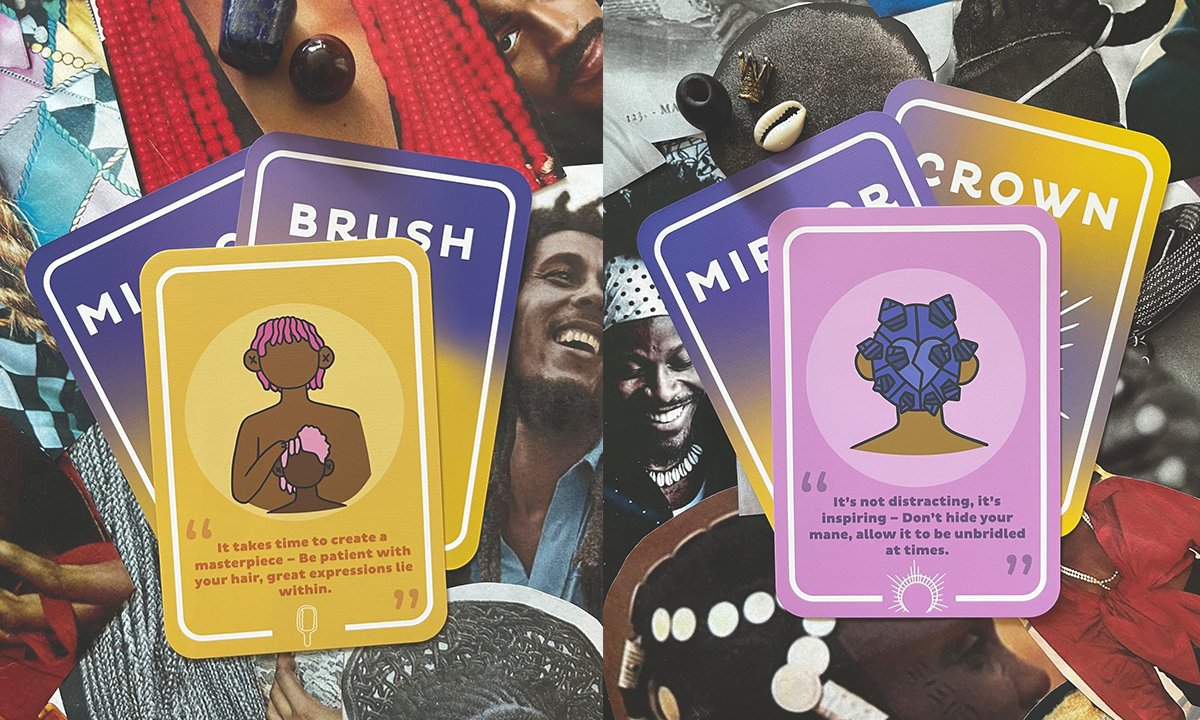
Celebrating the History & Significance of Black Hair
Join us in empowering the Black community and fostering understanding.

Workshops
Engage in our interactive workshops that explore the history and significance of Black hair while fostering meaningful conversations about anti-Black racism.
Hire Simone to lead an inspiring session on the History of Black Hair. Through her personal story and deep expertise, Simone will guide a meaningful discussion that explores the cultural and historical significance of Black hair.
Contact us
Black Hair History
Looking for something specific? Let’s collaborate to create a workshop tailored to your audience’s needs, ensuring an engaging and impactful experience.
Contact us
Custom Topics

Shop
Discover the history, significance, and empowerment behind Black hair. Explore our affirmation cards designed to inspire self-love, confidence, and a deeper connection to your roots.

Send us a message
partingtheroots@gmail.com
Toronto, ON
Reach Out
Please reach out below for pricing and availability.
Land Acknowledgment
Parting The Roots™ provides programs and services across what is now known as Canada. The organization began in Tkaronto (Toronto), the traditional territory of the Mississaugas of the Credit, the Anishnaabe, the Chippewa, the Wendat, and the Haudenosaunee Confederacy Peoples.
Canada exists as we know it today because of the harmful impacts of colonization and coloniality.
I acknowledge the harm of colonization that First Nations and Peoples of the global diaspora still experience today. Particularly First Nations, Black Peoples and those with these and other intersections who experience displacement, land theft, enslavement, violence, genocide, and cultural appropriation.
We continue to learn about and honour our responsibilities as treaty people as we work in solidarity with fellow community members to heal from colonization's harm and reclaim the joy, well-being, creativity and liberation that is every human’s birthright.
In recognizing the significance of hair, particularly within Indigenous and Black communities, it's important to acknowledge the detrimental effects of colonization. This historical influence has fostered feelings of shame and discrimination toward how individuals from these communities choose to style their hair. However, I'm pleased to see a growing movement dedicated to reclaiming the reverence for our hair and embracing it as a source of celebration.
Thank you, Leena Sharma-Seth from Mending the Chasm and Ventura Collective, for inspiring us to move from a land acknowledgement to an acknowledgment of colonization’s harm and reinforcing our collective efforts for collective liberation.





